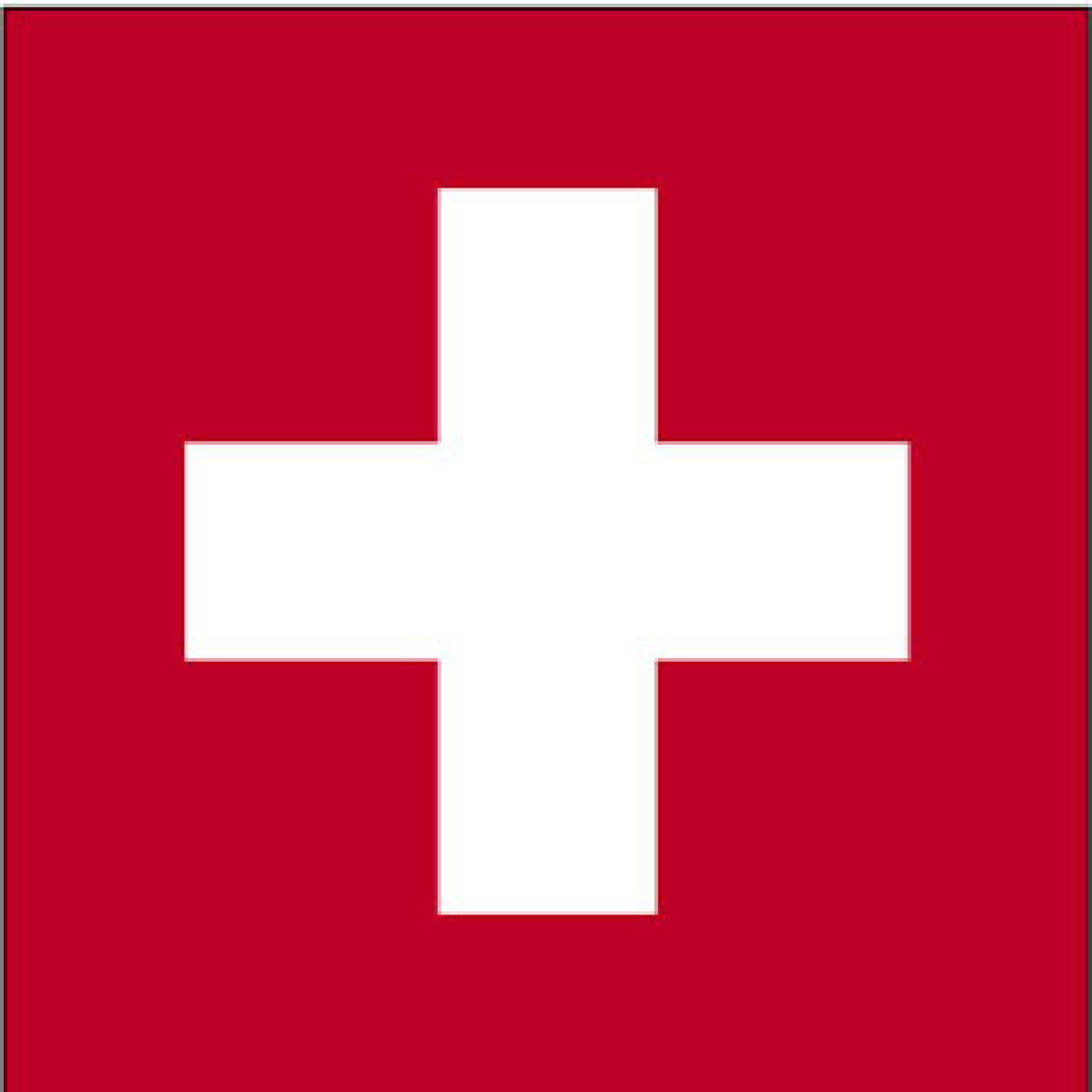Switzerland Flag

Flag History
In 1339 every soldier and officer of the troops leaving for the battle of Laupen was marked with the sign of the Holy Cross. The white cross ona red field has been a common Swiss emblem ever since.
Flag Date of Adoption
12 December 1889
Flag Symbolism
red square with a bold, equilateral white cross in the center that does not extend to the edges of the flagSwitzerland National Anthem
| Listen to National Anthem | |
| Anthem Lyrics |
GermanTrittst im Morgenrot daher, Seh' ich dich im Strahlenmeer, Dich, du Hocherhabener, Herrlicher! Wenn der Alpen Firn sich rötet, Betet, freie Schweizer, betet, Eure fromme Seele ahnt Gott im hehren Vaterland! Gott, den Herrn, im hehren Vaterland!
FrenchSur nos monts, quand le soleil Annonce un brillant réveil, Et prédit d'un plus beau jour le retour, Les beautés de la patrie Parlent à l'âme attendrie; Au ciel montent plus joyeux Les accents d'un coeur pieux, Les accents émus d'un coeur pieux.
ItalianQuando bionda aurora Il mattin c'indora, L'alma mia t'adora Re del Ciel. Quando l'alpe già rosseggia A pregare allor t'atteggia, In favor del patrio suol, Cittadino Iddio lo vuol, Cittadino Dio, si Dio lo vuol.
Rumantsch (Ladin) In l'aurora la daman At cugnuoscha bain l'uman, Spiert etern dominatur, Tuot pussant! Cur ils munts straglüschan sura, Ura, liber Svizzer, ura. Tia orma sainta ferm Dieu in tschêl, il bap etern. Dieu in tschêl, il bap, il bap etern.
Text Courtesy of Bruno |
